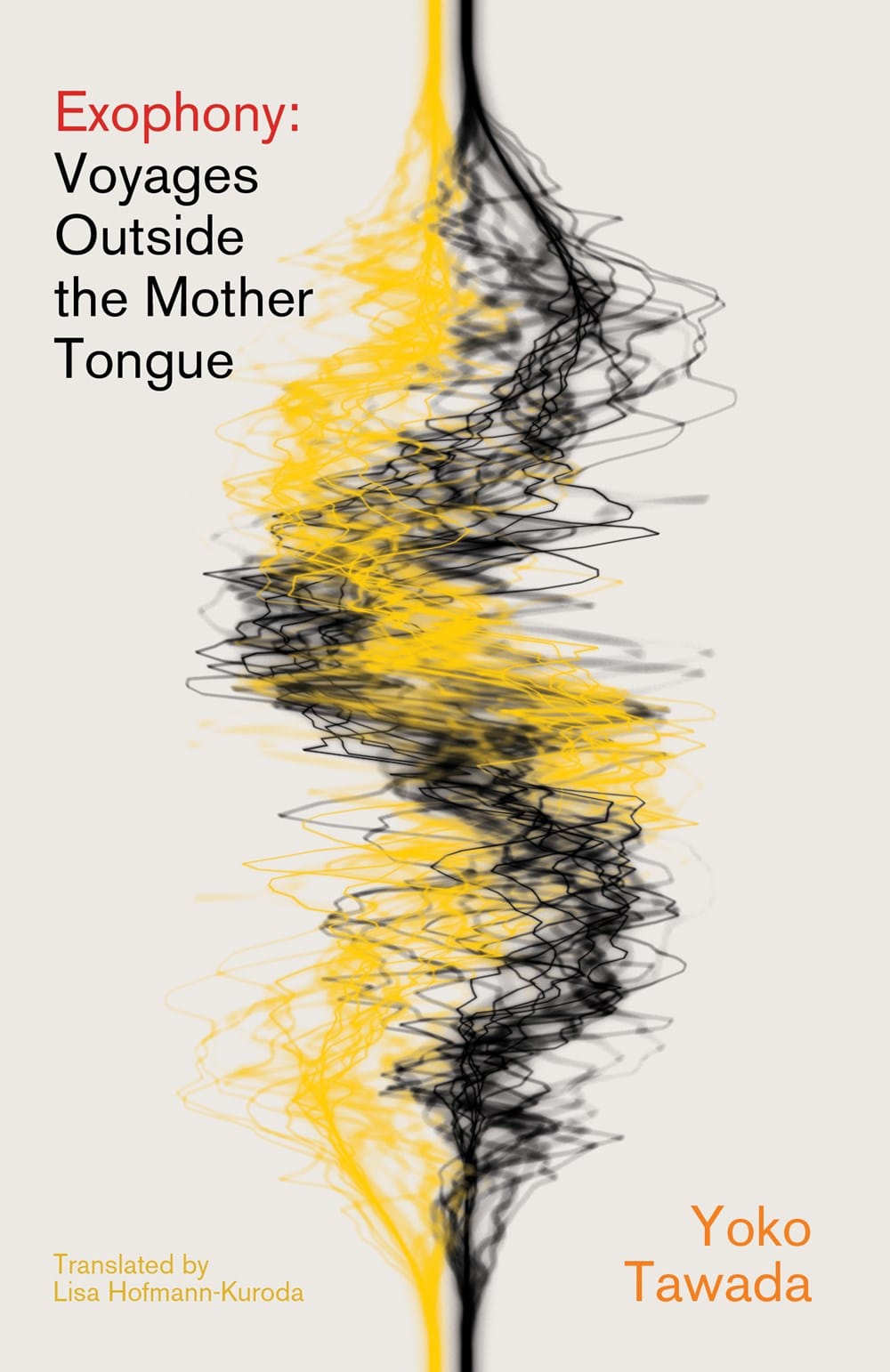Review: Exophony: Voyages Outside the Mother Tongue

Review: Exophony: Voyages Outside the Mother Tongue
Yoko Tawada
New Directions, on sale June 3, 2025
We are living in a time of great concern about borders. This is most prominent in the United States, where in 2025 people who have legally immigrated to the country are being taken off the street and detained, people who have protected status are being sent to foreign prisons, and people who have lived in the country for years without a criminal record are being violently arrested by U.S. Immigration and Customs Enforcement (ICE). The United States is being the loudest and most heinous about it, but it is not alone in this extreme concern about its borders.
There is also, relatedly, great concern about membership in particular groups. People are carefully delineating who is white or Black, who is American or foreign, who is disabled enough (or too disabled) to be worth of care.
This is all arbitrary, and it is exhausting to monitor these boundaries. Unless you are Yoko Tawada.
Tawada’s 2003 essay collection, Exophony: Voyages Outside the Mother Tongue, has been newly translated by Lisa Hofmann-Kuroda. Tawada was born in Japan and eventually moved to Germany, and she writes in both Japanese and German. She lives in both languages and delights in the strangeness of metaphorical borderlands, where one language or culture or custom stops and another begins, or maybe hasn’t quite begun yet, or blends with the first. “I’ve always been less interested in crossing borders than dwelling in them,” she writes. Basically, Tawada likes it when things get all mashed up and weird. That’s where the interesting stuff lives.
The essays in this book were written a quarter century ago, and the conferences and teaching posts she describes all take place in the late 1990s and early 2000s—the turn of the century. This pieces in this collection surround another point in time when borders and foreignness came to the global forefront: the Al-Qaeda airplane attacks in the U.S. on September 11, 2001. Tawada doesn’t mention this event and its aftermath directly, or if she does, I didn’t take note of it. It was only after closing the book and considering her ability to revel in the spaces between lands and languages that it struck me how relevant and expansive her writing is both then and now.
Take, for example, the opening to the essay “Cape Town,” where she admits her frustration with the common question, “What language do you dream in?”:
Implicit in the question is the assumption that it’s impossible for people to truly speak two languages—that one of them must be the “fake” language and the other must be the “real” language…. People who ask me these kinds of questions seem to have a burning desire to know which language corresponds to the “real” me.
The essay extols the multilingualism present in countries like South Africa, where she travels for research, and wonders if, in a population where everyone speaks multiple languages, “new unforeseen possibilities may open up that do not and cannot exist in a society of solely multilingual speakers.” I think she’s right, and I think this is the root of the problem of nationalism and an insistence on monolingual culture within a country’s borders. The specter of new ideas in new languages cannot help but change the status quo, and it may not benefit the people currently in power in the same ways they have always benefited. It very likely will benefit them in new ways, ways they’re unable to imagine, and so they draw the lines and sort the people and declare the one real language to be used within their borders.
Not that Tawada is interested in the cliched building of bridges. She explicitly states, thanks to a phonetic struggle where the German words for “bridge” and “gap” sound very similar when she pronounces them: “Discovering the gaps (Lücke) between cultures was much more interesting than building bridges (Brücke) between them.” She does not intend to widen the gap or reinforce the gap, she intends to peer into the gap and study it closely, to write from within the gap.
Tawada’s Paul Celan and the Trans-Tibetan Angel (2024, translated by Susan Bernofsky) is the latest of her novels to dive deep into the gaps. The protagonist is unclear on the boundaries of his own self, even within himself, as he sometimes uses the distant third-person identifier “the patient,” the more familiar first name “Patrik,” and finally first-person pronouns. He occupies gaps in narrative time, where he is about to attend a symposium on the poet Paul Celan, he has turned down the invitation to the symposium and stayed in Germany, and he has already traveled to the symposium in France. Tawada has dropped the reader into a very deep gap, a chasm, maybe even a bardo, in Patrik’s existence, where he meets the Trans-Tibetan angel of the title.
The novel, I learned from the translator’s note, is draped on a structure of Celan’s work. I know only the barest sketches of Celan’s life and poetry, so almost every reference or quote was lost on me. Tawada’s writing doesn’t require you to understand every reference, possibly because she is a vastly knowledgeable Celan scholar as well as an original novelist. He was born in a part of Romania that became part of Austria and then Ukraine, making him a kind of citizen of the gap that fascinated Tawada. He was not only a poet but a translator, and he became a French citizen in the 1950s. Tawada and Celan’s lives only geographically coincide in Germany, where he lived for a time, and linguistically in German. But if the gap between cultures, languages, and countries exists, these two artists prove it is habitable and imaginatively fertile.
Tawada celebrates the elevated language of literature, where words are chosen carefully for meaning and sound. It’s “the opposite of regurgitating the language we hear in our everyday lives. It is to come face to face with the very brink of language and its possibilities.” Tawada, like Celan, comes to that brink and gladly steps inside to expand and “deform” the language we use for mundane life into something special. “There’s really no point,” she says, “in writing normal novels.” Abnormal novels and essays on the richness found at the edges of language and culture, rather than the aversion many find there, might be exactly what we need right now.
I aimed to write a thousand words on this essay collection and Tawada’s most recently translated novel, and I did, but I also want to add a coda about a coda. Lisa Hofmann-Kuroda wrote a translator’s note for Exophony that is one of the finest essays on translation I’ve ever read. If you are interested in the gaps between languages and the challenges of translating someone who is happiest rooting around inside those gaps, then do not skip her note.
Links to stuff in this post (I get a tiny commission from Bookshop.org if you order using these links)
- Exophony: Voyages Outside the Mother Tongue by Yoko Tawada, translated by Lisa Hofmann-Kuroda https://bookshop.org/p/books/exophony-voyages-outside-the-mother-tongue/d01011eb56ee3b19
- Paul Celan and the Trans-Tibetan Angel by Yoko Tawada, translated by Susan Bernofsky https://bookshop.org/a/7065/9780811234870
KHG’s latest translations, Memoirs of a French Courtesan Volume 1: Rebellion and Volume 2: Spectacle and Volume 3: Luck are available now.
